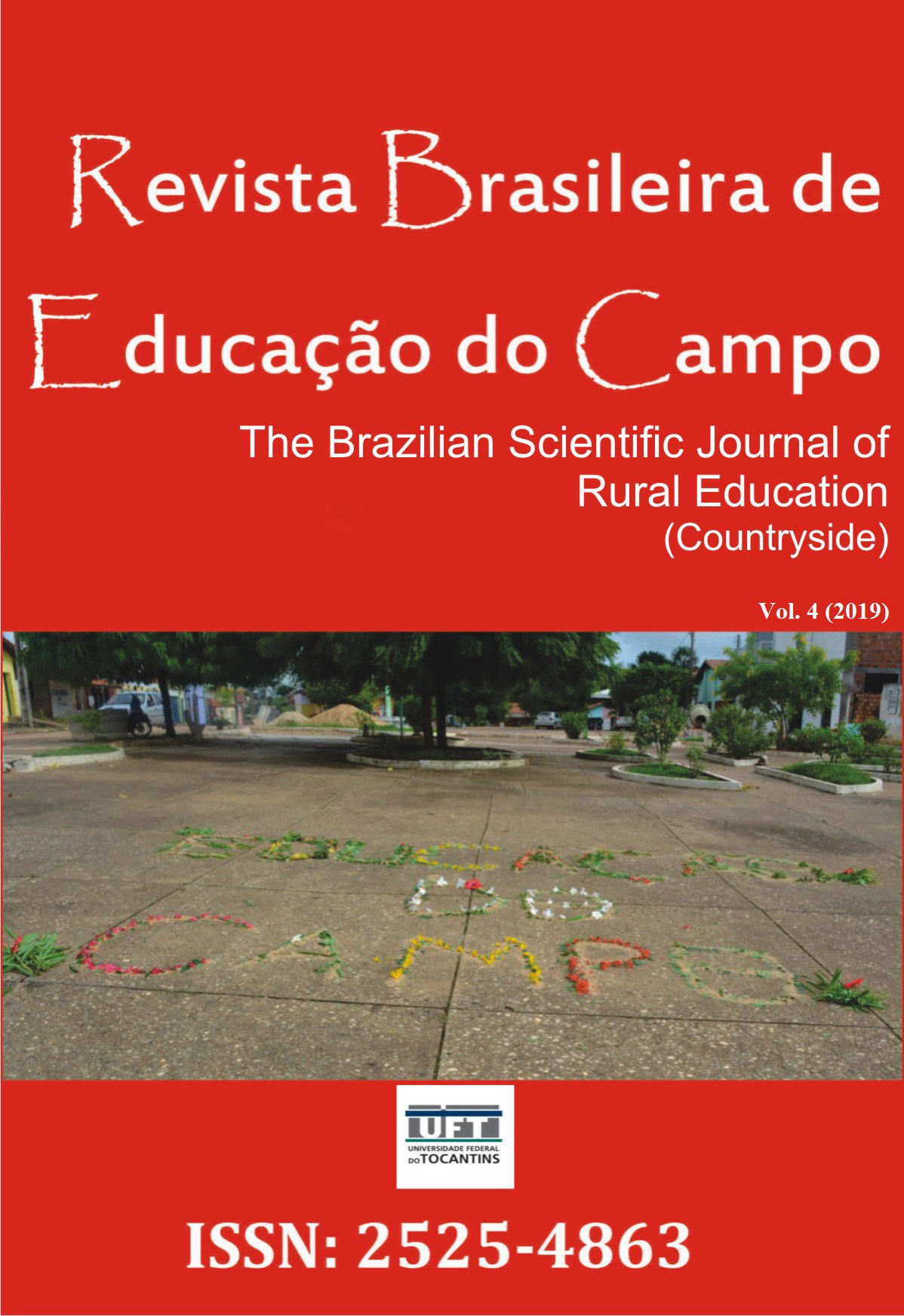Paulo Freire and the literacy of young people and adults in the Landless Workers Movement (MST)
DOI :
https://doi.org/10.20873/uft.rbec.v4e5676Résumé
Esse texto é parte de uma pesquisa sobre a alfabetização de jovens e adultos no Movimento dos Trabalhadores Rurais Sem Terra (MST). O Movimento tem como um de seus fundamentos a pedagogia de Paulo Freire e compreende a alfabetização para além da decodificação e do mero conhecimento do sistema alfabético, mas como processo de conscientização. Nesse sentido, se apropriar da escrita é se apropriar de um instrumento de luta necessário para a emancipação. Porém, em seu percurso, o MST foi estabelecendo parcerias que pudessem garantir a implementação de seus projetos de educação, e essas parcerias também trouxeram para dentro do Movimento outros referenciais teóricos. Recentemente, a adoção do método cubano Sim, Eu Posso! (SEP), cujo vínculo é com a perspectiva tradicional de alfabetização, trouxe um elemento de tensionamento e a necessidade de que se investigue em que medida os pressupostos freireanos continuam fundamentando as práticas alfabetizadoras do MST. Para essa investigação, se recorreu à pesquisa bibliográfica, à análise de materiais produzidos pelo MST e à pesquisa de campo.
Palavras-chave: Alfabetização de Jovens e Adultos, Alfabetização, Movimento dos Trabalhadores Rurais Sem Terra.
Paulo Freire and the literacy of young people and adults in the Landless Workers Movement (MST)
ABSTRACT. This text is part and a survey on the literacy of young people and adults in the Landless Workers Movement (MST). The Movement has as one of its foundations in the pedagogy of Paulo Freire understands literacy beyond the decoding and the mere knowledge of the alphabetical system, but as a process of awareness. In this sense, ownership of the writing is appropriate for an instrument of struggle necessary for the emancipation. However, in your route, the MST has been establishing partnerships that could ensure the implementation of its education projects, and these partnerships also brought into the Movement other theoretical references. More recently, the adoption of the Sim, Eu Posso! (SEP), Cuban method, whose link is with the traditional literacy perspective, has brought a further element of tension and the need to investigate the extent to which Freirean assumptions continue to underpin MST literacy practices. For this investigation, bibliographical research, the analysis of materials produced by the MST and field research.
Keywords: Young People and Adults, Literacy, Landless Workers Movement (MST).
Paulo Freire y la Alfabetización de jóvenes y adultos en el MST (Movimiento de los Trabajadores Rurales Sin Tierra)
RESUMEN. Este texto es parte y una investigación sobre la alfabetización de jóvenes y adultos en el Movimiento de los Trabajadores Rurales Sin Tierra (MST). El Movimiento tiene como uno de sus fundamentos la pedagogía de Paulo Freire y comprende la alfabetización más allá de la decodificación y del mero conocimiento del sistema alfabético, sino como proceso de concientización. En ese sentido, apropiarse de la escritura es apropiarse de un instrumento de lucha necesario para la emancipación. Sin embargo, en su recorrido, el MST fue estableciendo alianzas que pudieran garantizar la implementación de sus proyectos de educación, y esas alianzas también trajeron dentro del Movimiento otros referentes teóricos. Más recientemente, la adopción del método cubano Sim, Eu Posso! (SEP), cuyo vínculo es con la perspectiva tradicional de alfabetización, trajo otro elemento de tensión y la necesidad de que se investigue en qué medida los supuestos freireanos continúan fundamentando las prácticas alfabetizadoras del MST. Para esa investigación, se recurrió a la investigación bibliográfica, al análisis de materiales producidos por el MST ya la investigación de campo.
Palabras clave: Alfabetización de Jóvenes y Adultos, Alfabetización, Movimiento de los Trabajadores Rurales Sin Tierra (MST).
Téléchargements
Téléchargements
Publié-e
Comment citer
Numéro
Rubrique
Licence
Proposal for Copyright Notice Creative Commons
1. Policy Proposal to Open Access Journals
Authors who publish with this journal agree to the following terms:
A. Authors retain copyright and grant the journal right of first publication with the work simultaneously licensed under the Creative Commons Attribution License that allows sharing the work with recognition of its initial publication in this journal.
B. Authors are able to take on additional contracts separately, non-exclusive distribution of the version of the paper published in this journal (ex .: publish in institutional repository or as a book), with an acknowledgment of its initial publication in this journal.
C. Authors are permitted and encouraged to post their work online (eg .: in institutional repositories or on their website) at any point before or during the editorial process, as it can lead to productive exchanges, as well as increase the impact and the citation of published work (See the Effect of Open Access).














